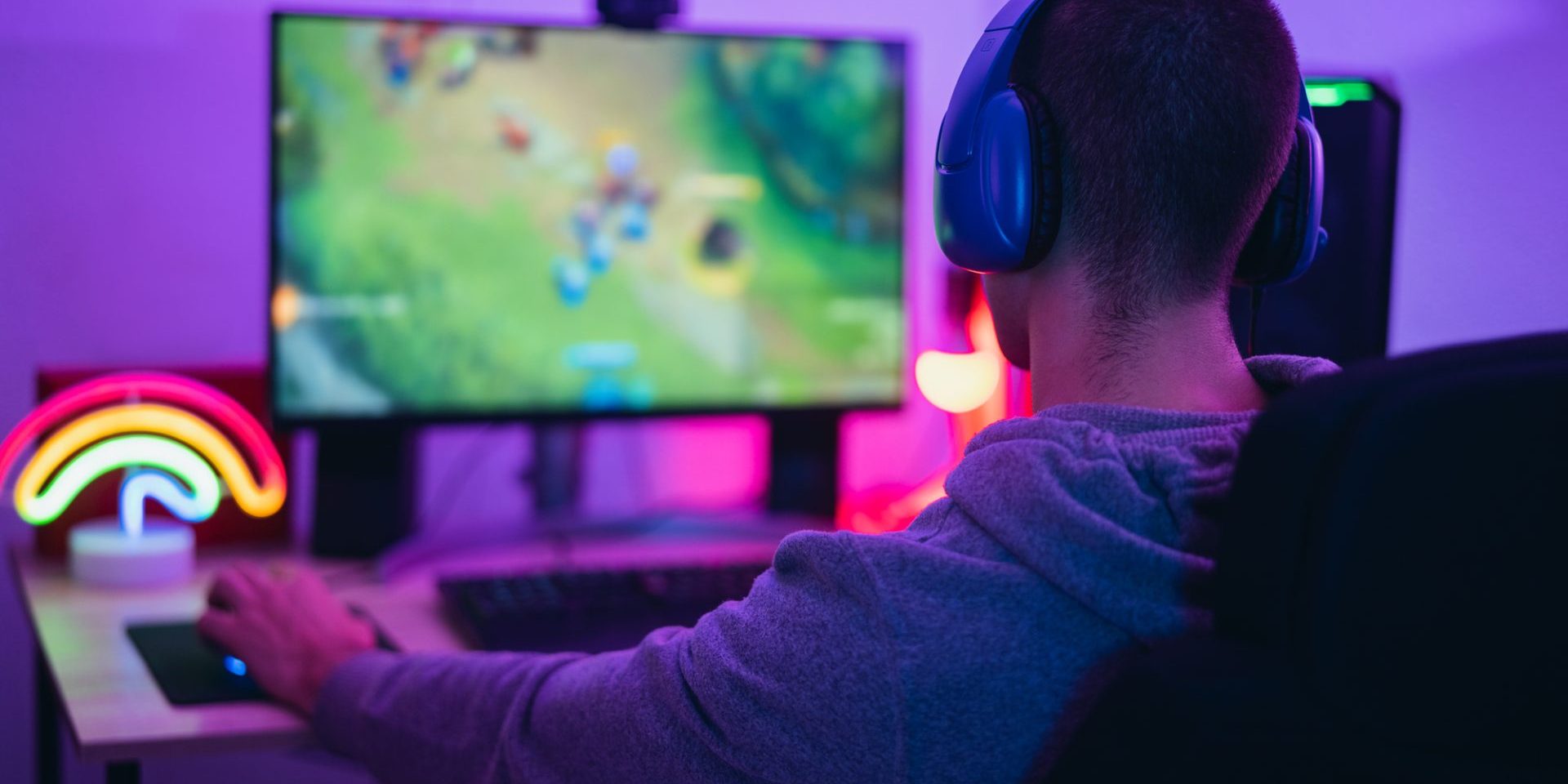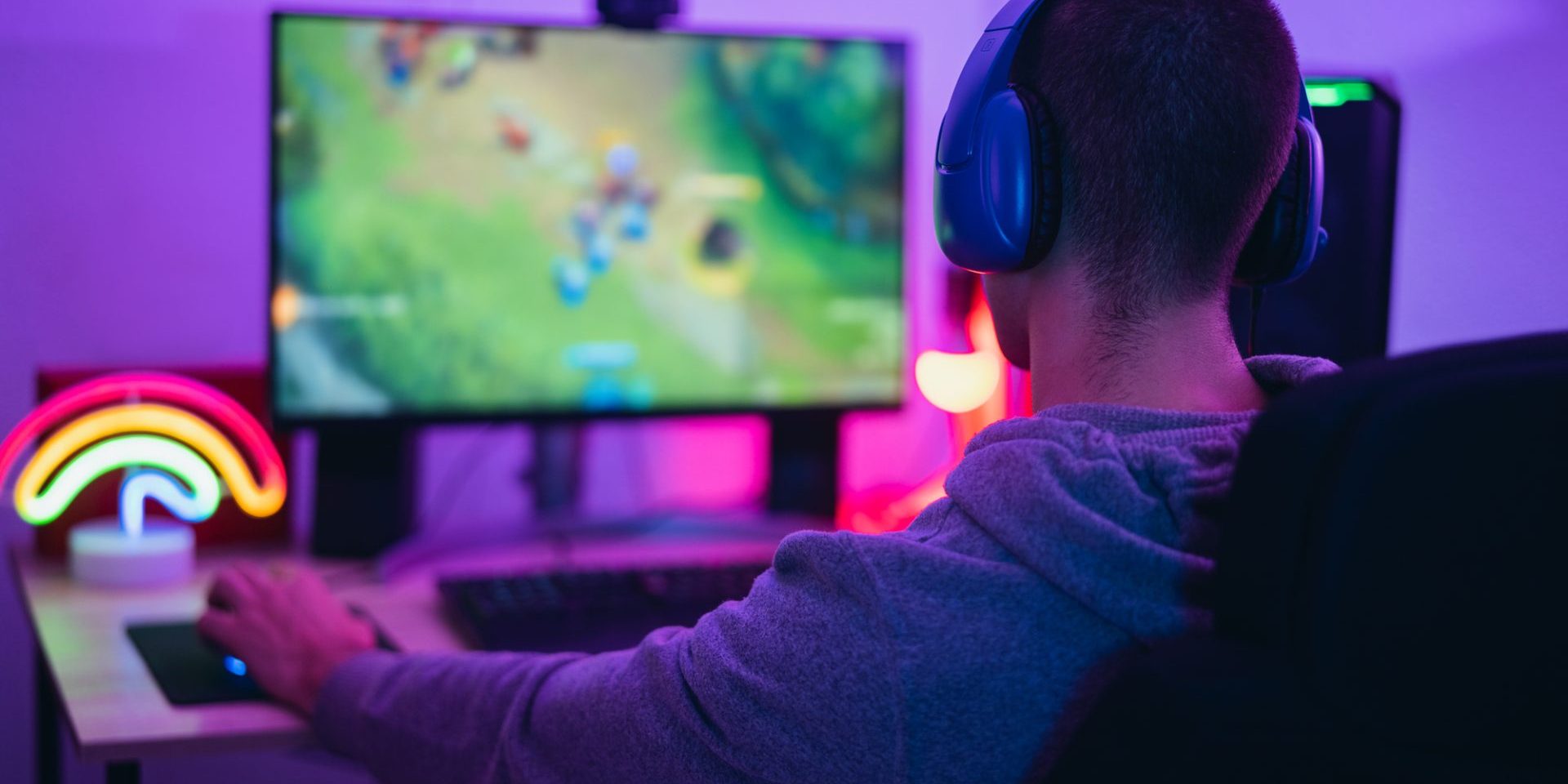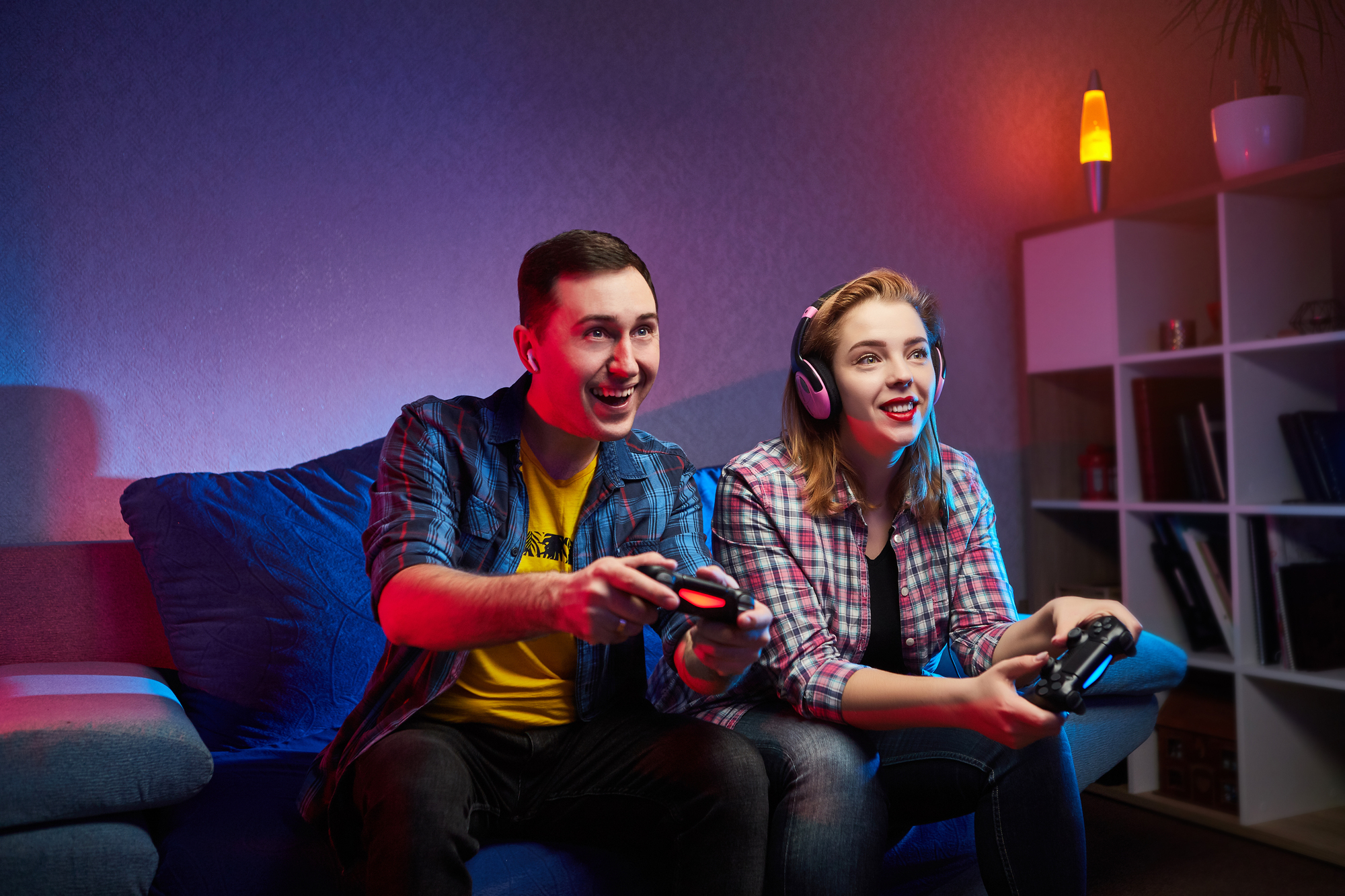

Video games are no longer just for entertainment. Recent research explores their potential as cognitive rehabilitation tools, particularly for older adults and individuals with brain injuries. Studies have examined various gaming platforms, from computer software to mobile apps and virtual reality systems, to assess their impact on cognitive functions.
Brain gaming software shows promise in improving cognitive abilities for older adults with impairments. A systematic review and meta-analysis of electronic brain games found positive effects on cognition, suggesting these accessible tools could be valuable for cognitive rehabilitation. The ease of use and widespread availability of smartphones and tablets make brain games an increasingly popular option for cognitive training.
Virtual reality (VR) technologies are also emerging as powerful tools for neurorehabilitation and cognitive enhancement. VR-based serious games offer immersive experiences that can engage patients in cognitive tasks while providing a controlled environment for therapists to monitor progress. This approach may help address challenges in patient motivation and adherence to traditional rehabilitation programs, potentially leading to better outcomes in cognitive recovery.
Foundations of Cognitive Rehabilitation
Cognitive rehabilitation aims to restore or improve cognitive functions affected by injury or disease. It encompasses strategies to address impairments, enhance remaining abilities, and develop compensatory techniques.
Understanding Cognitive Impairments
Cognitive impairments can result from various conditions such as traumatic brain injury, stroke, or neurodegenerative diseases like Alzheimer’s. These impairments affect different cognitive domains including attention, memory, executive functions, and language.
Mild cognitive impairment (MCI) represents an intermediate stage between normal aging and dementia. It involves cognitive decline greater than expected for an individual’s age but does not significantly interfere with daily activities.
Dementia, a more severe form of cognitive impairment, impacts multiple cognitive domains and interferes with daily functioning. Alzheimer’s disease is the most common cause of dementia, characterized by progressive memory loss and decline in other cognitive abilities.
Principles of Neurorehabilitation
Neurorehabilitation focuses on restoring neural function and minimizing disability caused by neurological disorders. Key principles include:
- Neuroplasticity: The brain’s ability to reorganize and form new neural connections
- Task-specific training: Practicing specific tasks to improve targeted functions
- Repetition: Frequent practice to reinforce learning and skill acquisition
- Intensity: Challenging exercises to promote neurological changes
These principles guide the development of cognitive rehabilitation programs. Therapists apply them to create exercises that target specific cognitive domains and promote functional improvements.
Cognitive Domains and Assessment
Cognitive rehabilitation addresses several key domains:
- Attention: Focusing on relevant information and ignoring distractions
- Memory: Encoding, storing, and retrieving information
- Executive functions: Planning, decision-making, and problem-solving
- Language: Understanding and producing speech and written communication
- Visuospatial skills: Perceiving and manipulating visual information
Assessment tools help identify specific cognitive deficits and track progress. These include standardized tests, questionnaires, and functional assessments. Therapists use these results to create personalized rehabilitation plans targeting affected cognitive domains.
Working memory training has gained attention as a potential intervention for improving cognitive function. It involves exercises designed to enhance the ability to temporarily store and manipulate information.
Gaming and Cognitive Enhancement
Gaming technologies offer promising avenues for cognitive enhancement and rehabilitation. These innovative approaches leverage interactive digital experiences to stimulate and improve various cognitive functions.
Video Games and Cognitive Skills
Video games can boost specific cognitive abilities. Action games often improve visual attention and processing speed. Strategy games enhance problem-solving and planning skills. Puzzle games strengthen working memory and spatial reasoning.
Research shows that regular gaming may lead to better multitasking abilities and faster reaction times. Some studies indicate improved decision-making skills in gamers compared to non-gamers.
Gaming’s cognitive benefits extend beyond entertainment. Educational games target specific learning objectives while maintaining engagement. These “serious games” aim to develop skills like critical thinking and information retention.
Computerized Cognitive Training
Computerized cognitive training programs use game-like activities to target specific cognitive domains. These digital interventions focus on areas such as attention, memory, and executive functioning.
Many platforms offer personalized training regimens based on individual performance. Users complete tasks of increasing difficulty, adapting to their skill level.
Studies show mixed results for these programs. Some research indicates improvements in targeted cognitive skills, especially for older adults. Other studies question the transfer of these gains to real-world tasks.
Ongoing research aims to identify the most effective training approaches and determine which populations benefit most from these interventions.
Virtual Reality in Cognitive Rehabilitation
Virtual reality (VR) creates immersive environments for cognitive rehabilitation. This technology allows therapists to simulate real-world scenarios in controlled settings.
VR applications support various cognitive functions:
- Attention training through interactive tasks
- Memory exercises in virtual environments
- Executive function practice via complex problem-solving
VR’s immersive nature may increase patient engagement and motivation. This technology enables safe practice of daily living skills for individuals with cognitive impairments.
Research shows promising results for VR in treating conditions like traumatic brain injury and stroke. Ongoing studies explore its potential for neurodegenerative disorders.
Brain-Computer Interfaces
Brain-computer interfaces (BCIs) create direct communication pathways between the brain and external devices. This technology holds potential for cognitive enhancement and rehabilitation.
BCIs can:
- Control prosthetic limbs through thought
- Assist communication for individuals with severe motor impairments
- Provide neurofeedback for cognitive training
Current research explores BCIs for improving attention, memory, and learning. These systems may offer new approaches to treating cognitive disorders.
Challenges remain in developing user-friendly, reliable BCIs for widespread use. Ethical considerations surrounding cognitive enhancement through direct brain manipulation require careful examination.
Clinical Evidence and Methodological Considerations
Research on gaming for cognitive rehabilitation has produced valuable insights. Studies vary in design, quality, and outcomes, necessitating careful analysis of the available evidence.
Reviewing Scientific Literature
Systematic reviews and meta-analyses form the backbone of evaluating gaming interventions for cognitive rehabilitation. These studies synthesize findings from multiple randomized controlled trials (RCTs) and randomized clinical trials. Databases like PubMed, Web of Science, Medline, PsycINFO, Embase, CINAHL, and Cochrane serve as primary sources for identifying relevant research.
A recent systematic review examined brain gaming interventions for older adults with cognitive impairments. The analysis included studies on non-immersive electronic brain games, finding them safe and potentially effective for maintaining or improving cognitive functions.
Evaluating Methodological Quality
Assessing the quality of included studies is crucial for drawing reliable conclusions. Researchers often use tools like the ROB (Risk of Bias) Tool to evaluate potential biases in RCTs. This assessment examines factors such as randomization processes, blinding, and outcome reporting.
Funnel plots help identify publication bias in meta-analyses. These visual representations can reveal if smaller studies with negative results are underrepresented in the literature.
Intervention Dose and Outcome Analysis
The effectiveness of gaming interventions often depends on the “dose” – the frequency, duration, and intensity of the training. Studies vary in their intervention protocols, making direct comparisons challenging.
Outcome measures typically focus on cognitive functions, but some research also considers quality of life improvements. Heterogeneity in gaming platforms, cognitive status of participants, and assessment tools can complicate the interpretation of results.
Future research should aim for more standardized protocols and outcome measures to facilitate meaningful comparisons across studies.
Practical Applications and Future Directions
Cognitive rehabilitation through gaming is evolving rapidly, with new applications and technologies emerging. These advancements are shaping how individuals integrate cognitive exercises into their daily routines, interact with gaming platforms, and access therapeutic tools.
Integration into Daily Life
Cognitive rehabilitation games are becoming more seamlessly integrated into everyday activities. Mobile apps allow users to engage in short, frequent training sessions throughout the day. Some platforms incorporate cognitive exercises into common tasks like cooking or shopping, reinforcing skills in real-world contexts.
For older adults, these games often target Instrumental Activities of Daily Living (IADLs) such as managing finances or medication schedules. This approach helps maintain independence and quality of life as people age.
Virtual reality (VR) environments simulate real-life scenarios, allowing users to practice cognitive skills in safe, controlled settings. These immersive experiences can be particularly beneficial for individuals with conditions like multiple sclerosis or those recovering from stroke.
Advancements in Gaming Technology
Gaming technology for cognitive rehabilitation continues to progress. Artificial intelligence now adapts game difficulty in real-time based on user performance, providing personalized challenges.
Brain-computer interfaces are being explored as a way to directly measure cognitive engagement during gameplay. This technology could offer more precise feedback and tailored interventions.
Augmented reality (AR) games blend digital elements with the physical world, creating interactive cognitive exercises that can be performed in various locations. This versatility makes rehabilitation more engaging and accessible.
Non-immersive VR options are expanding, allowing users to benefit from 3D environments without the need for specialized headsets. These alternatives can be particularly useful for older adults or those with physical limitations.
Usability and Accessibility
Improving usability and accessibility is a key focus in cognitive rehabilitation gaming. Developers are creating interfaces that accommodate various physical and cognitive abilities, including options for voice control and simplified graphics.
Smartphones and tablets are becoming primary platforms for cognitive games, leveraging their widespread availability and familiarity. This shift makes rehabilitation tools more accessible, especially for older adults who may be less comfortable with traditional gaming systems.
Usability studies are guiding the design of more intuitive game controls and clearer instructions. These improvements help users focus on cognitive tasks rather than struggling with game mechanics.
Remote monitoring features allow healthcare providers to track patient progress and adjust treatment plans as needed. This telemedicine approach has gained importance during the COVID-19 pandemic, enabling continued rehabilitation support from a distance.










